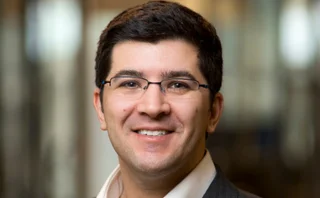Electricity house of the year: Provincial Electricity Authority (PEA)


In 2024, electricity sales at Thailand’s Provincial Electricity Authority (PEA) rose by 5% as the country experienced continued expansion in its tourism sector, as well as the effects of government stimulus measures on residential electricity consumption and infrastructure development. Geopolitical factors also had an impact – slow but steady global economic growth that year created manufacturing and export opportunities for companies based in the country.
PEA provides electricity to more than 20 million customers across 74 Thai provinces – excluding Bangkok, Nonthaburi and Samut Prakan – or around 99% of the country’s geographic coverage. The state-owned enterprise uses a digital platform to serve residential and commercial consumers, including large industrials and government agencies. The authority procures a mix of renewable energy from sources that include wind, solar and hydropower.
Thailand is a country rich in renewable energy resources and, with its strategic geographic location, holds significant potential to attract global companies committed to reducing carbon emissions
Mongkol Treekijjanon, Provincial Electricity Authority
Digital technologies have also contributed to PEA’s recent growth, according to its governor, Mongkol Treekijjanon. This is key to satisfying customers in a rapidly changing market: “The global electricity industry is undergoing a structural and operational transformation, with many new business players entering the market, and increased liberalisation of electricity business competition. Customer expectations are rising, particularly regarding grid stability and service quality,” he says.
Wider industry trends have also enhanced the importance of environmental issues such as decarbonisation. For a country such as Thailand – which competes globally to attract energy-intensive manufacturing companies – being able to offer green power is a valuable added benefit. Large customers, including industrials, accounted for more than half (53%) of PEA’s total electricity sales in 2024, and it is focused on making renewables a significant element of its portfolio to attract even more customers from this segment.
“Thailand is a country rich in renewable energy resources and, with its strategic geographic location, holds significant potential to attract global companies committed to reducing carbon emissions. While manufacturers are increasingly aware of their energy needs and carbon reduction targets, they continue to face challenges in accessing the cost-effective RE100 solutions necessary to achieve these goals,” Treekijjanon explains, referring to a global initiative in which companies commit to run on 100% renewable energy by 2050. He says companies can also find it difficult to navigate Thailand’s complex environmental regulations and infrastructure networks.
In response, PEA has developed a suite of products for companies that aspire to meet RE100 targets, including offering long-duration energy storage batteries. “This initiative not only enables companies to source renewable energy efficiently, but also provides end-to-end engineering, procurement and construction services for related infrastructure,” Treekijjanon adds.
With this offering, he says PEA is “helping to bridge the gap between sustainability goals and practical implementation”. At the same time, Treekijjanon believes the initiative helps position Thailand as a more attractive destination for global low-carbon investment.
In addition to decarbonisation, several other global power market trends have shaped PEA’s recent strategy, including decentralisation via microgrids and prosumers, and digitalisation developments such as smart meters and automation. Treekijjanon believes these trends are contributing to the growing need for improved electricity system quality and reliability among PEA’s customers.
Systems that allow for collection and analysis of big data can help transform service delivery, and so artificial intelligence tools are also playing a growing role in PEA’s operations. “Driving the organisation towards becoming a digital utility is essential,” Treekijjanon says.
To find new approaches in this rapidly evolving environment, PEA is not only developing its own digital capabilities, but is also planning to establish a Green Tech Fund to discover and invest in clean tech start-ups. PEA is currently assessing the suitability and investment structure of the fund, but foresees generating returns from its investments as well as integrating this new tech into its own operations.
All of this aligns with PEA’s aim to tackle sustainability challenges by creating systems that support its customers as they face the transition to a net-zero world, while also continuing to pursue growth.
More on Awards
Environmental products house of the year: ENGIE
Energy giant signs raft of forward-thinking environmental deals in Apac
Newcomer of the year: Marex
Commodities and financial services firm expands rapidly across Apac region, entering multiple new markets
Voluntary carbon markets house of the year: Marex
Marex’s support of mangrove projects provides high-quality credits for clients and socio-economic benefits for local communities
OTC trading platform of the year: Marex
Marex’s Agile platform registers impressive volume and client growth in Asia
Technology advisory firm of the year: KWA Analytics
With a focus on strategy and scalability, KWA Analytics improves clients’ operations in Japanese power, biofuels and certificates
Commodities technology house of the year: Topaz Technology
Strong revenue growth, Asia focus and a unique approach to unifying physical and financial risk
Energy Risk Asia Awards 2025: the winners
Winning firms showcase the value of prudent risk management amid challenging market conditions
Data and analytics firm of the year: LSEG Data & Analytics
Energy Risk Awards 2025: Firm’s vast datasets and unique analytics deliver actionable insights into energy transition trends








